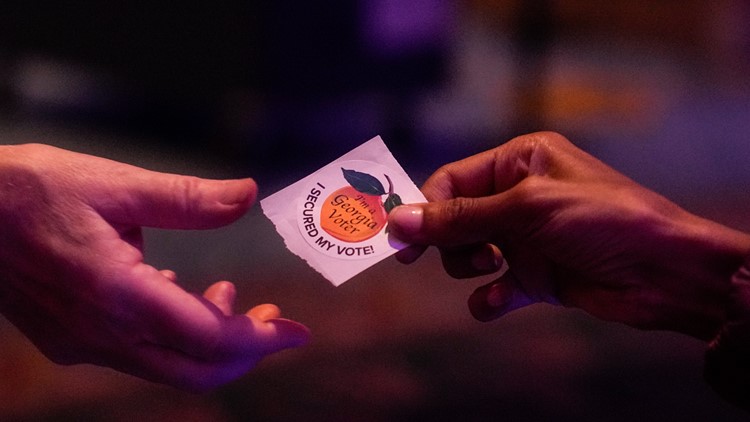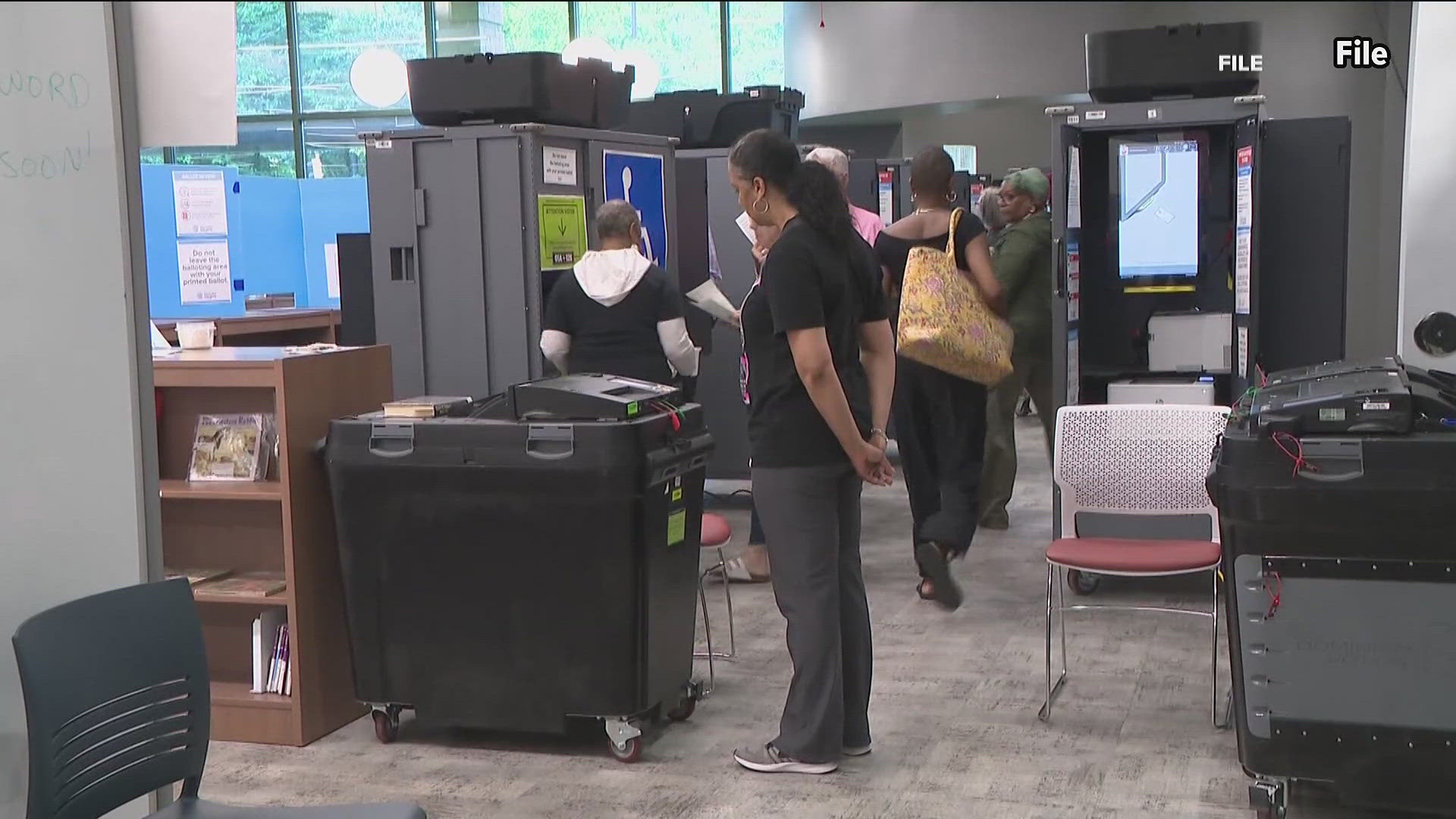GEORGIA, USA — As you head to the polls in the Peach State, you might be hearing terms like "swing state," "battleground state," or "toss-up state," and you might be wondering what those terms mean.
The term holds significant weight, especially for candidates focused on gaining the most votes in the election.
Georgia is considered a swing state and battleground state because, during the 2020 election against Former President Donald Trump and current President Joe Biden, the Democratic candidate won in a predominantly and historically Republican state.
States that did not swing in 2020 could now have a toss-up vote in the 2024 election, considering the twists and turns the presidential race has taken.
What is a swing state?
A swing state is heavily divided between the two major political parties, Democrats and Republicans; the term mostly centers around the presidential election.
According to Share America, political observers believe every election focuses on counties within swing states because they can determine “which candidate wins all the state’s electors.”
Swing states are also called "toss-up states" and "purple states."
Is a swing state the same as a battleground state?
Yes and no.
Swing states refer to the swinging back and forth of political parties each election, with candidates typically winning by a hair of votes.
Red states are Republican, and blue states usually are Democratic.
Those states then become battleground states where candidates make frequent visits and run their political ads heavily. Hence, there is an uptick in political billboards when driving around metro Atlanta and more political ads on air in the Peach State.
It also explains the plethora of headlines from news outlets about the frequent visits to Georgia.
Most swing states turn into battleground states. Georgia, Arizona, Michigan, Pennsylvania and Wisconsin are the swing states for this year's election. Florida has been notoriously known as a swing state in previous elections.
Why does this matter?
Swing and battleground states are usually the states that can determine the outcome of an election up until the last count or second.
Most states, including Georgia, have a winner-take-all election approach, which means the candidate with the most popular vote wins. Still, Georgia is one of few states with a runoff election if the margin is too close, leading to a recertification of the popular vote.
Although the number of Electoral College votes determines the election's winner, your vote still counts. Georgia has 16 electors, which are determined by population size.
Depending on which party wins the popular vote, that party will elect the candidate to become the president.
Usually, the candidate with the most popular votes wins the Electoral College vote, but that is not always the case.
11Alive is committed to helping you vote confidently by understanding the 2024 election issues that impact you. Our goal is to educate and inform our audience about the election process. We plan to do that by verifying facts, providing context, and explaining the system. Get more election resources here at 11alive.com/vote.



